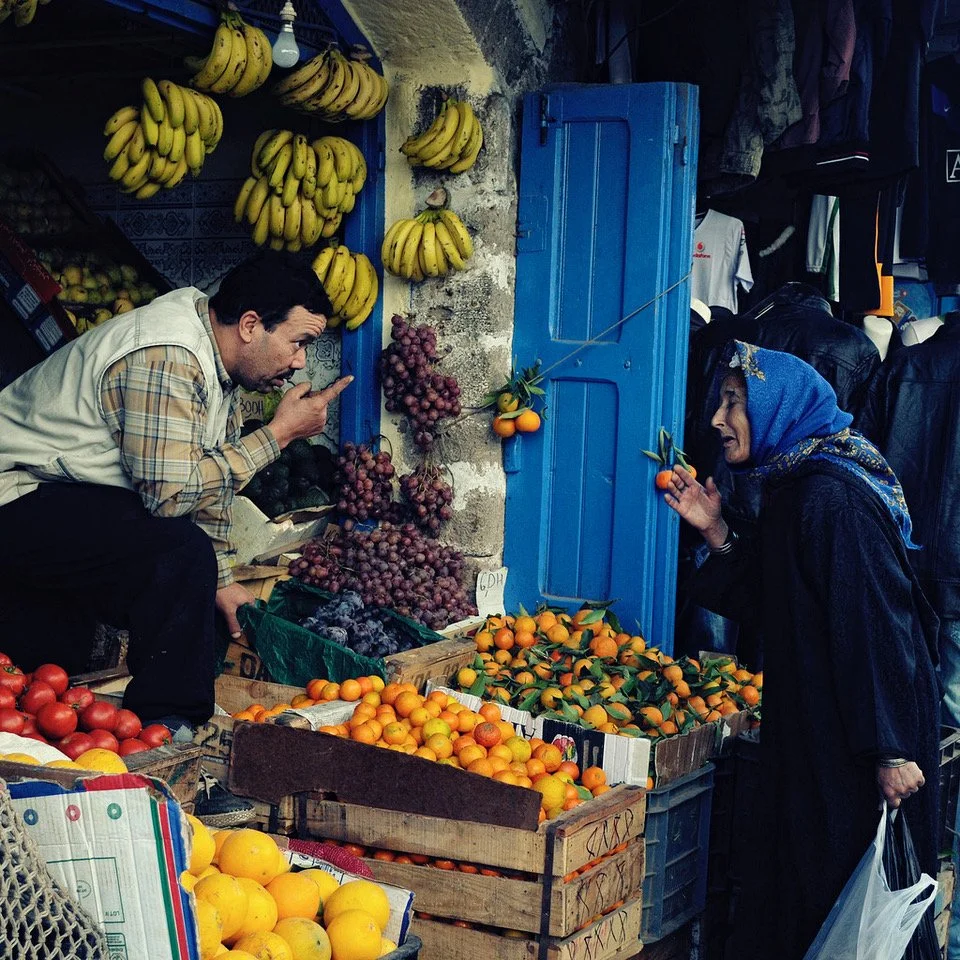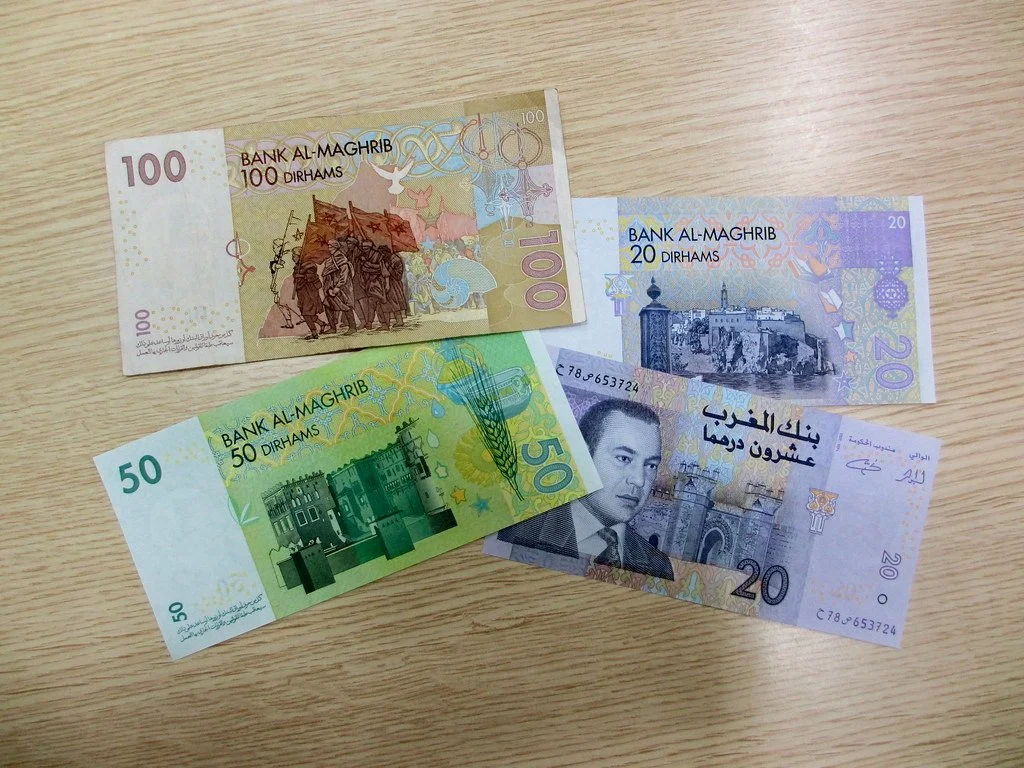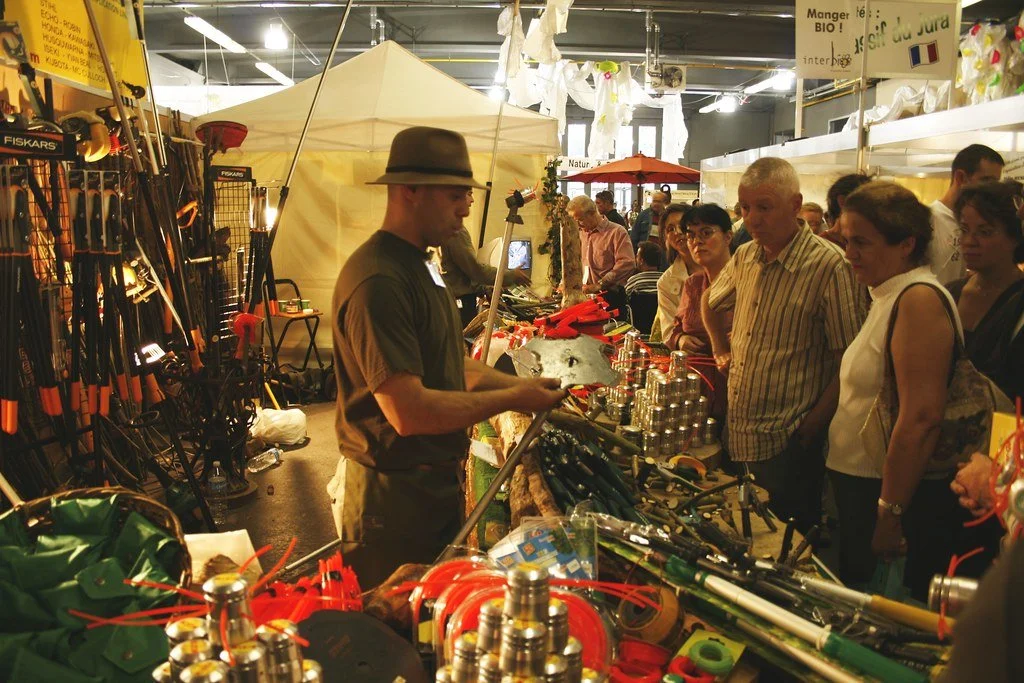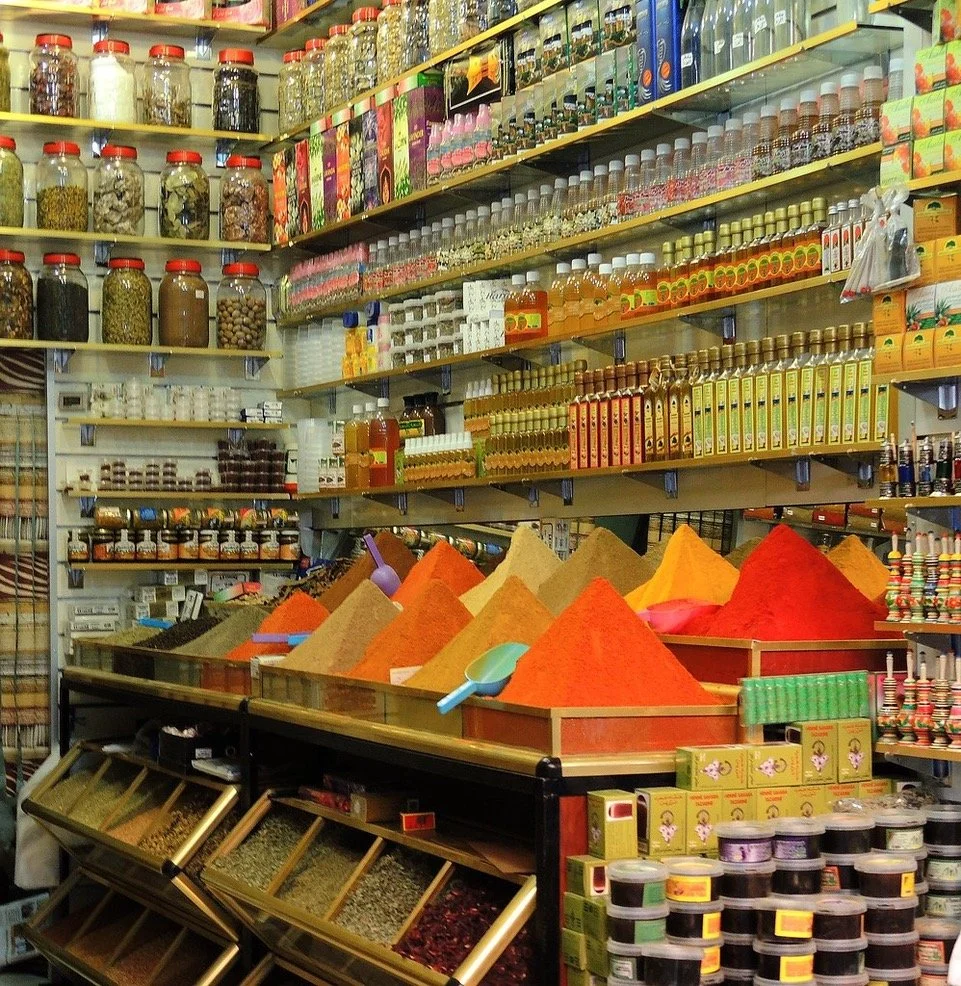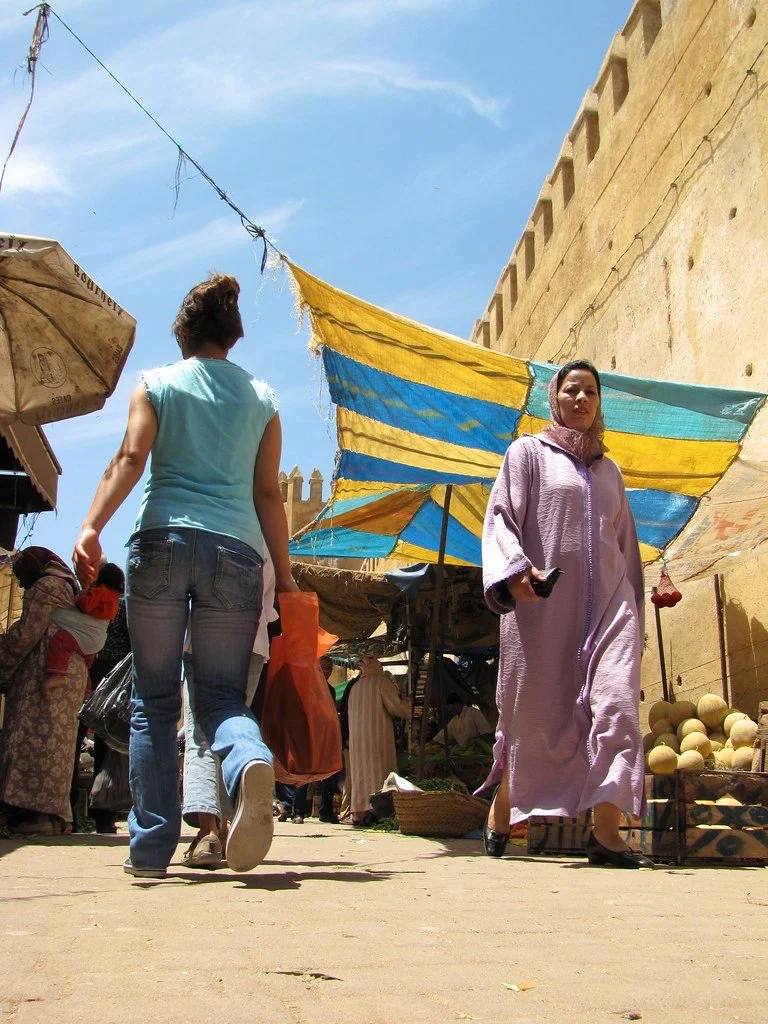At Moroccan souks and bazaars, haggling is a must-have skill for any shopper.
A merchant haggling with customer. Mait Juriado. CC BY-NC-SA 2.0.
In Morocco, the marketplace environment can be overwhelming, especially for travelers new to the area. Outdoor marketplaces in Morocco are called souks and commonly hold different shops that sell a variety of goods and products. Commonly combining thousands of stalls, Moroccan marketplaces are expansive loud and are home to some of the most intense merchants in the world, making it necessary for travelers to prepare before going to shop. Merchants tend to upsell and overprice all their products, doing their best to convince customers to give them their money. However, a practice called haggling allows customers to challenge merchants, allowing them to negotiate for lower prices. Haggling is a common practice in Morocco In learning the proper techniques, customers can navigate the tricky environment of souks and get a desired product for a reasonable price. Included below are five tips for effectively haggling with merchants in Morocco.
1. Understand the Currency Change and Start Low
Moroccan dirhams. Emily Nadira. CC BY 2.0.
It is fundamental to the success of the customer if they first know the currency exchange between Morocco’s currency and that of their home country. At souks in Morocco, stall keepers typically accept dirhams, which is the central currency in Morocco. By knowing the currency exchange rate between your country’s currency and the dirham, the prices offered by merchants will be relative to the currency you use daily rather than an unfamiliar one. , in hand allowing you to better negotiate with sellers. Occasionally, stall keepers and merchants will accept euros, but the importance of the exchange rate still remains for travelers shopping with a currency different from their home counytries’ .
Finally, it is essential to a customer's success that they start the bargaining off low. Original offers from merchants should never be accepted: merchants are trying to upsell you. By counter-offering a shopkeeper’s original price with one that is much lower, customers will open up the option to bargain with the seller, who will continue to haggle with the customer until both parties agree on a price .
2. Do not Let Emotions Sway You
A customer haggling with merchant. Wanderer_by_trade. CC BY-NC-SA 2.0.
There are two ways in which emotions tend to affect a customer’s ability to haggle. One way is if the merchant seems to be too excited or emotional about selling for higher prices. This is a tactic used by merchants to sway their buyers. The Matador Network says, “You’re dealing with actors of the highest order here,” and that “sellers may feign offense, rage, or sorrow.” Do not be deterred by emotional merchants, stick to your counter-offers and hold your ground.
The second way emotions affect proper haggling is when the customer themselves becomes overwhelmed or upset with how a sale is going. Don’t allow yourself to get angry with merchants or look overly upset when a merchant isn’t willing to haggle over an item you really like. The more merchants see you are getting upset over negotiations that aren’t going your way, the more they know you would be willing to pay for an item. By keeping your emotions in check, you can better control how the haggling goes, making you more likely to purchase an item at your desired price.
3. Never Pay For The First Price Offered
Merchant selling goods. Jepoirrier. CC BY-SA 2.0.
As a customer, you should never accept the initial price offered on any item at a souk. Merchants know to overprice their first offer because travelers who are unaware of the haggling culture in Morocco accept the item's price as fixed. In countries like America and others where haggling at commercial marketplaces is uncommon, it may be uncomfortable to try and negotiate for price. However, as the Matador Network writes, “You’ll learn pretty quickly after arriving in Morocco that everything is negotiable.” Do not be afraid to haggle with your merchants..
4. Buy in Bulk
Spices from Marrakech. Ustung. CC BY 2.0.
Commonly, shopkeepers and merchants will be more likely to negotiate with you if you are buying more than one item. Luxe Adventure Traveler recommends that, “If you’re in a shop that has more than one item you want, group them together and bargain for a total price.” In buying multiple items from the same merchant, they will be more likely to negotiate with you, allowing you to get more for your money. Further, if you only want to purchase one item, try bundling with your travel companions or other friends and negotiate a total price for both, that way you may be able to purchase them for cheaper than if you were to buy them individually.
5. Know When to Walk Away
Shoppers walking through the marketplace. Jo.schz. CC BY-NC-SA 2.0.
Arguably, the most important tip that can be given to ensure a successful negotiation is to know when to walk away. Merchants in Morocco do not always enjoy haggling; you will not always be able to get the price you want for a specific item. Being able to recognize when a merchant is unwilling to sell for a lower price will help save you both time, energy and money.
You do not have to buy an item if you cannot negotiate the price you want to pay for it. Moreover, because souks and marketplaces in Morocco are so large, you can easily spend your time finding a similar item from a different stall for a much lower price. Know when enough is enough so you don’t waste your money on unsuccessful negotiations.
RELATED CONTENT:
TRIP: Trek the Golden Sand Dunes of Morocco
Video: The Natural Beauty of Morocco
PHOTO ESSAY: MOROCCO: The Color of Tough
Ava Mamary
Ava is an undergraduate student at the University of Illinois, double majoring in English and Communications. At school, she Web Writes about music for a student-run radio station. She is also an avid backpacker, which is where her passion for travel and the outdoors comes from. She is very passionate about social justice issues, specifically those involving women’s rights, and is excited to write content about social action across the globe.

